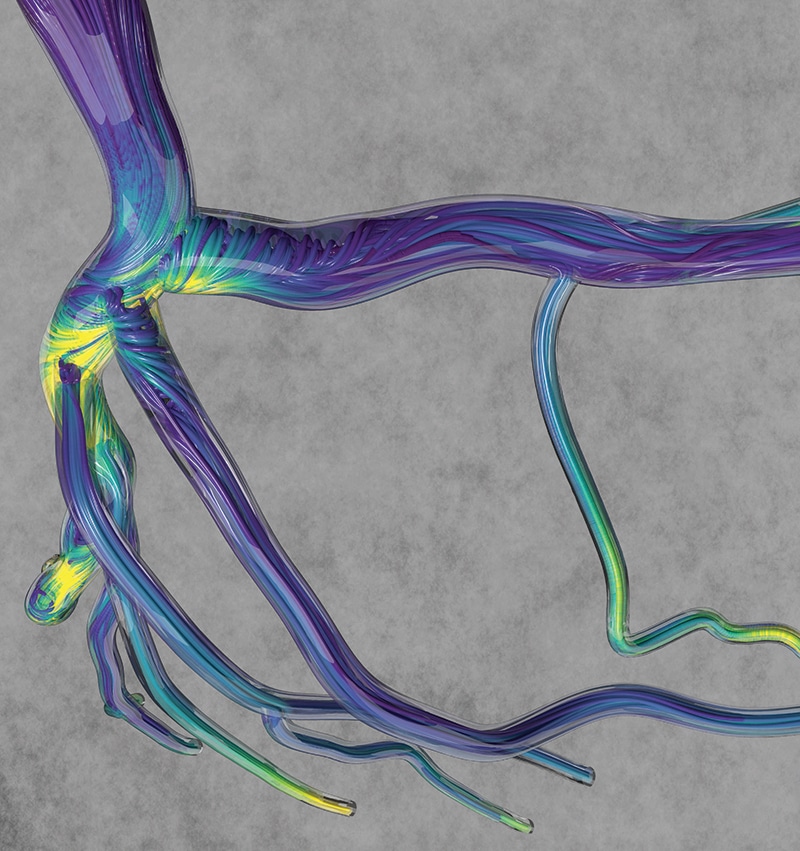Centers & Institutes
Purposeful Partnerships. Real-World Results.
Duke Engineering maintains significant research partnerships with organizations that share our vision of a better world through innovation. Together, we’re working toward discoveries aimed at making life for everyone healthier and safer.

PreMiEr ERC: Precision Microbiome Engineering
An five-year, $26 million NSF Engineering Research Center developing diagnostic tools and engineering approaches that prevent harmful and encourage beneficial microrganisms in the built environment.

Christensen Family Center for Innovation
CFCI—created in partnership with the family of the thinker behind “distruptive innovation”—empowers entrepreneuers and makes community partnerships that accelerate the process of invention and commercialization.

Duke Engineering Institute for Enterprise Engineering
IEnE offers a nimble range of graduate-level educational products that train leaders to positively transform organizations.

Center for Research & Engineering of AI Technology in Education
CREATE is developing AI tools that improve teaching and learning—including a virtual assistant that teaches programming.

Center for Extreme Materials
Advancing fundamental knowledge in materials having extraordinary performance in extreme environments.

Meta-Imaging MURI
This US Air Force Multidisciplinary University Research Initiative is using metasurfaces to reduce the size and weight of imaging systems.

Spinodal Hardened High-Entropy Ceramics MURI
SPICES is a US Department of Defense Multidisciplinary University Research Initiative writing recipes for new materials in super-hard, high-temperature applications.
Duke Materials Initiative
DMI provides strategic leadership through interdisciplinary expertise, research focus and paradigm-shifting graduate degrees.


Agile Waveform Design for Communication Networks in Contested Environments UCE
A five-year, $5 million US Air Force University Center of Excellence to develop novel waveform design and optimization techniques that are agile and robust.

Alliance for Interdisciplinary Innovations in Computing Education
Computing shapes society. AIICE is a national network creating supportive learning environments and expanding opportunities for students and educators across all backgrounds.

NSF Edge Computing Leveraging Next-Generation Networks
ATHENA is seven universities led by Duke aimed at transforming networks—and cultivating the next diverse and ethical generation of computing leaders.
Fitzpatrick Institute for Photonics at Duke
FIP is a multidisciplinary hub focused on light-based technologies with quantum, electronic and biomedical applications.


Center for Advanced Genomic Technologies
CAGT is a team of engineers, scientists and physicians working to adapt genomic tech to unravel disease biology and discover new drug targets.

NIH Center for Biomolecular & Tissue Engineering
CBTE coordinates interdisciplinary discovery and training across protein, cellular and tissue engineering.

Center for Computational & Digital Health Innovation
CDHI applies data-driven approaches to enhance diagnosis, treatment and prevention of disease.

Center for Quantitative Biodesign
CQB is a community of research labs working together to promote research excellence and scholarship at the nexus of quantitative biology, synthetic biology and machine learning.

Center for Global Women’s Health Technologies
A merger of Duke’s expertise in biomedical engineering and global health focused on solutions for cervical and breast cancers, and more—to improve the lives of women worldwide.

IGVF Characterization Center
A data generator of genetic variation impacts on gene regulation and phenotypes—supported by $8.6 million from the NHGRI Impact of Genomic Variation on Function Consortium.

UL Global Air Pollution & Health
A $3.6 million effort with Underwriters Laboratories investigating human health impacts from airborne pollution.

WaSH-AID: Water, Sanitation, Hygiene & Infectious Disease
Designing and deploying equitable and sustainable solutions to global public health challenges. Sponsored in part by the Bill and Melinda Gates Foundation.

NSF INFRAMES: Assessing Materials for Environmental Sustainability
A five-year, $1.6 million coordinated international community assessing the sustainability of the materials our society produces. A NSF AccelNET program.

Superfund Research Center
Members of our CEE faculty are co-investigators in this NIEHS-supported program focused on environmental contaminants and their impact on human development.
Quantum Computing
Uniquely, the Duke Quantum Center conducts research along the entire stack of the quantum information system. Since 2007, DQC members have been awarded over $170 million in funding and performed over $100 million in contracted government work.

NSF Software-Tailored Architecture for Quantum Codesign
STAQ is a Duke-led, seven-university, $15 million collaboration working to build the world’s first practical quantum computer.

Quantum Systems Accelerator
Duke is one of 14 U.S. institutions in QSA—a five-year, $115 million U.S. government effort to develop the solutions needed to harness quantum information science.

Spectator Qubit MURI
Led by Duke, this US Army Research Office Multidisciplinary University Research Initiative received $9 million to investigate the spectator qubit approach.

Duke Center on Risk
A multidisciplinary hub developing technology and policies to confront emerging societal risks—including climate change, pandemics, cyber‐attacks, financial shocks and terrorism.

Duke RESILE
A Center on Risk spin-out organized to intersect with business and advance climate risk and resilience research.

CIRCAD
The Center for Innovation in Risk-Analysis for Climate Adaptation and Decision-making is a joint venture with Duke’s Nicholas Institute for Energy, Environment & Sustainability.
